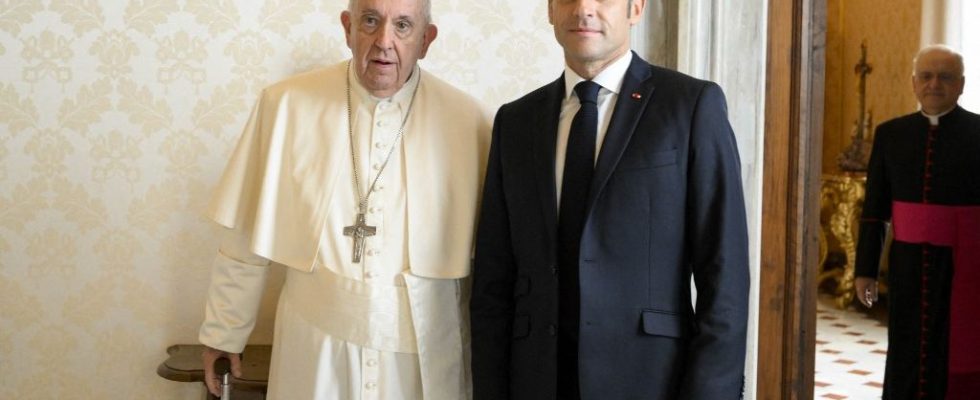The highlight of Pope Francis’ visit to Marseille will of course be the mass celebrated at the Vélodrome stadium, a sporting place of worship converted into a cathedral for a weekend. But a diplomatic sequence also awaits the head of the Vatican, welcomed at the airport by Elisabeth Borne, who will meet on Saturday with Emmanuel Macron. On the menu of their discussions should include ecology and migrants. Two particularly topical themes, between a summer marked by the effects of global warming and the migration crisis in Lampedusa, but also dear to the Pope. Can the sovereign pontiff, head of a tiny city-state, have diplomatic influence and influence the greatest powers?
“The essential part of his role is to be the spiritual leader of an immense community of 1.3 billion faithful, no head of state has this echo,” responds 20 minutes Bernard Lecomte, journalist and writer specializing in the Vatican. Today, “80% of Catholics live in the Southern Hemisphere,” explains the writer, citing “Nigeria, Argentina, the Philippines, the Congo.” “His word has a colossal influence in these countries”, relayed by the bishops, “the real power in the Church and an extraordinary network of informants”, and no less than “600,000 good sisters in the world, in contact with the population “. But if the Pope’s words touch the masses, it is not necessarily the same with the leaders of the G20.
“An ethics that has political significance”
“He is not a politician,” says Bernard Lecomte, but the pope “defends universal values which encompass politics” and are “above” the interests of States, starting with “the primacy and dignity of the ‘man “. “It offers ethics that have political significance,” adds François Mabille, professor of political science and researcher at Iris, specializing in the place of religions in international relations. To do this, he benefits from the weight of the Church, “an old institution which believes that it has a role to play”. With two thousand years of history behind us, “we don’t listen to the Pope like we listen to the head of an NGO born ten years ago,” believes Bernard Lecomte.
Thus, Pope Francis went to the European Parliament in 2014, the face of a Church “looking towards the future”, to defend “the way in which the Church and the EU can work together around education, the environment, migrants and youth,” recalls François Mabille. He also visited the island of Lampedusa in 2013, before writing the encyclical Laudato Si’“perhaps the most important text” of his mandate, devoted to ecology in 2015. And when the pope speaks of welcoming migrants, “it is not to please or annoy, but because “he believes that the fate of migrants is above political politics”, supports Bernard Lecomte.
Listened, but not necessarily heard
However, its influence is entirely “relative” and its “reach is limited”, judges François Mabille. “ The cross recently published a survey saying that 56% of practicing Catholics do not know of the existence of the encyclical Laudato Si’ », and the reception and living conditions of migrants have only worsened in ten years in Lampedusa. The discussions surrounding their reception “are already difficult negotiations within the States themselves”, and the Pope has no leverage to change the position of a Gérald Darmanin. It is therefore difficult to imagine a change of heart or a political consequence to the meeting of the Pope and Emmanuel Macron on Saturday morning.
“There is listening on the part of Emmanuel Macron which is incontestable, they have a certain complicity”, but “this complicity does not commit Emmanuel Macron, who is at the head of a secular Republic”, insists Bernard Lecomte . The journalist and writer cites the example of the debate on the end of life, on which “the pope has a radical position” but is “not very listened to in France”, where a bill on active assistance in dying is in gestation. Within the concert of nations, “when the Pope speaks, we listen to him”. But when it comes to applying their values, the powerful are not very practical.

